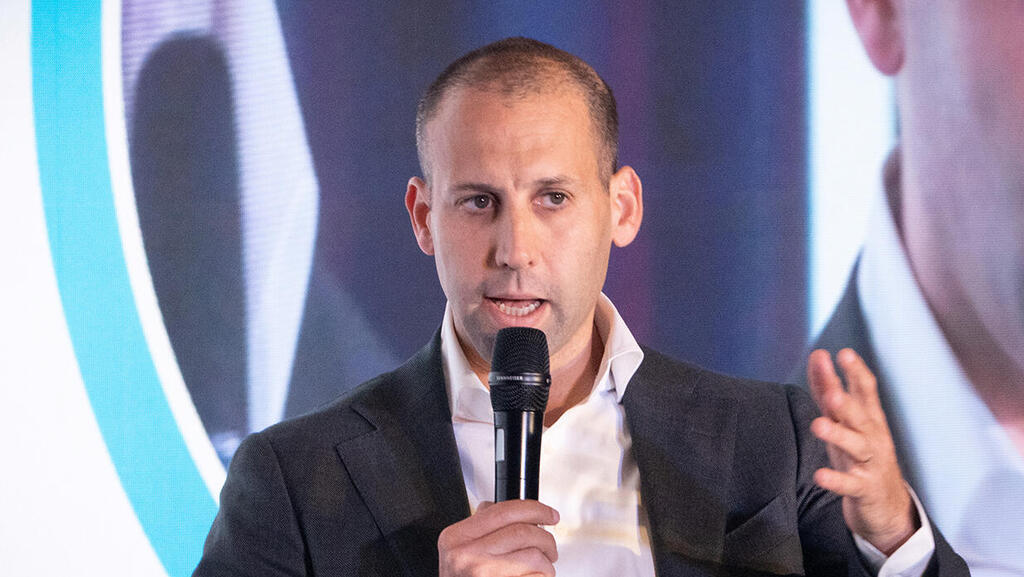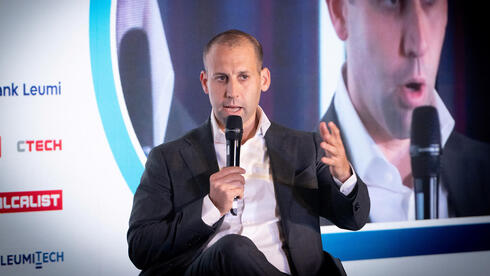
Mind the Tech London 2025
Tomer Raved: "Investors who look beyond the current challenges will see tremendous returns"
The Executive Chairman of Bezeq was speaking at Calcalist and Bank Leumi's Mind the Tech conference in London.
“Bezeq is ultimately part of the backbone of technology in Israel. For current technologies to exist, infrastructure is essential. To reach the next stage, as we saw in the UK, if we want to replicate the progress we’ve made with fiber and 5G in AI, we need synergies, and we are pursuing them through acquisitions,” said Tomer Raved, Executive Chairman of Bezeq, in response to a question about the company’s latest acquisition campaign. He was speaking with Yarden Rozanski of Calcalist at the Mind the Tech London 2025 conference, organized by Calcalist and Bank Leumi.
You mentioned AI. Bezeq is not the first name that comes to mind.
“To implement AI technology, you need broad infrastructure that extends all the way into homes. To connect the data centers of companies like Nvidia and Google, you need infrastructure, and that’s where we come in. In addition, we are adopting many AI tools within Bezeq itself. We use them to optimize network usage, and we work with many Israeli startups. We are constantly improving customer service through AI, using it both to save money and to generate revenue. As part of this effort, we also recently began adopting Wi-Fi 7 technology and cybersecurity solutions to support our home consumers.”
At the beginning of the week, you halted talks to acquire Exelera, which owns a submarine cable, and announced plans to deploy another such cable independently. What are you trying to achieve with such a project?
“Israel is in a very strategic geographic location. The entire global internet depends on submarine cables, and Israel sits at the critical junction between Europe and Asia, through which much of the world’s traffic flows. In recent years, companies like Google, Microsoft, Amazon, and Nvidia have recognized the risks in this region. The issue didn’t begin with the Houthi threats in the Red Sea, it dates back to when the Muslim Brotherhood ruled Egypt.
“Just last week, Microsoft’s cloud service went down in Saudi Arabia because a ship cut one of their submarine cables. This underscores how critical such infrastructure is. The only safe way to connect Europe and Asia runs through Israel. We have already completed Google’s first cable, and together with Jordan and Saudi Arabia there is now a system linking the continents. We are the only player in Israel capable of building such infrastructure. Israel’s location at this junction creates opportunities. Despite the geopolitical risks, we are already in discussions with Saudi Arabia and the UAE, because there is no alternative.”
Related articles:
You serve as chairman of Bezeq as a representative of Searchlight Capital, a private investment fund. What are the dynamics shaping the Israeli market today?
“Israel has undergone a fundamental transformation over the past decade, a decade of maturity in terms of investments. This has generated significant returns for those who invested here, including in Bezeq. Israel’s GDP has grown sharply over this period compared to OECD countries. And contrary to the claim made yesterday that Israel is turning into Sparta, in reality we are a country that thrives on international collaboration. Investors who look beyond the current challenges will see tremendous returns. The economic fundamentals are strong. Private equity funds that recognize this understand the significant value Israel can generate.”
From your perspective, do you expect to see more Israeli companies under foreign ownership in five years?
“Despite the scale of Israel’s pension market, domestic private equity activity is not yet large enough to fuel the country’s growth. That’s critical, because deep capital reserves are needed. Investors who can look past geopolitical noise see the potential to create significant value, even if they accept a risk premium due to regional instability.”
How do you see Bezeq in a few years?
“Israel depends on Bezeq’s infrastructure. We see Bezeq as a highly innovative company. Every phone in our hands is connected to the network, and all of it ultimately relies on fiber and cellular antennas. The company will continue to grow because other companies depend on Bezeq’s infrastructure.”
